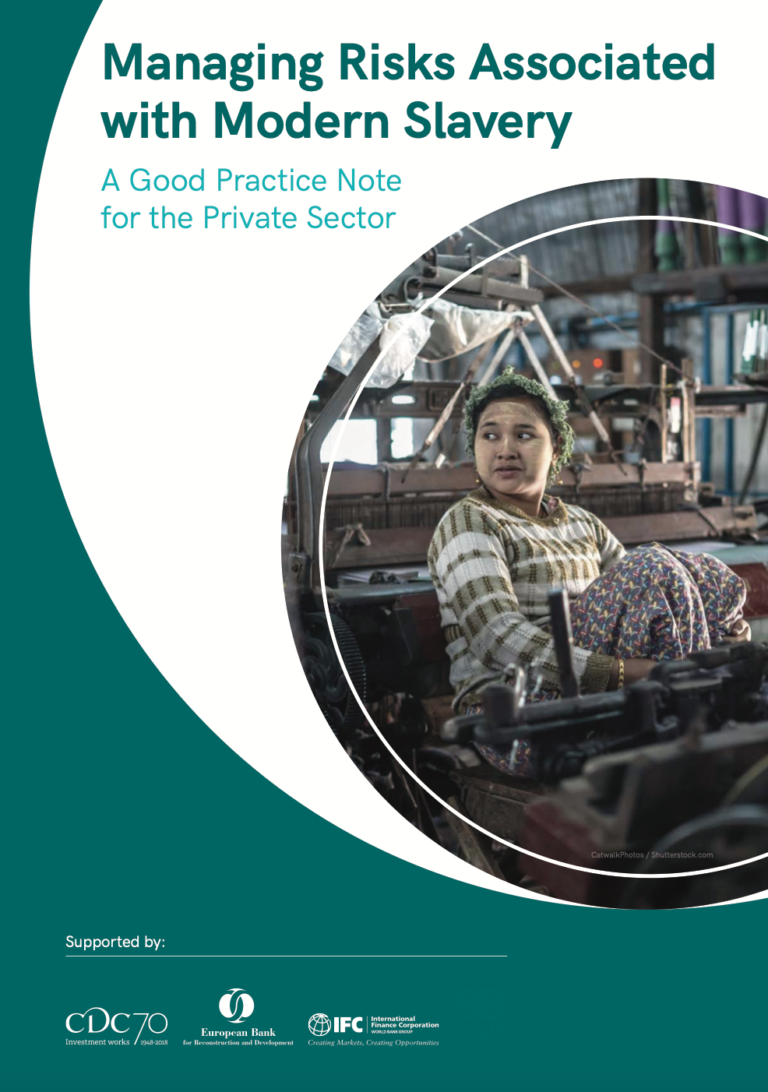An estimated 40.3 million people, most of whom are women, are living in situations of modern slavery in the world today. Among those affected, approximately 16 million people work in the private sector. There is now much greater awareness of the number of people who are working in conditions of modern slavery, as well as increased scrutiny from civil society and legislative action by governments. As a result, there is growing recognition among private sector actors that they have a responsibility to address modern slavery risks in their operations and business relationships.
This Good Practice Note (GPN) provides the private sector with guidance on identifying, mitigating and remedying modern slavery risks. It serves as a comprehensive resource for two main audiences: investors and companies. The investor audience includes banks, private equity firms and other financial actors that provide finance to private companies in emerging markets. For companies, this GPN provides guidance on potential actions to take across a range of sectors where there may be risks of modern slavery. The GPN further offers Development Finance Institutions (DFIs) with guidance on modern slavery risks associated with their portfolio companies.

